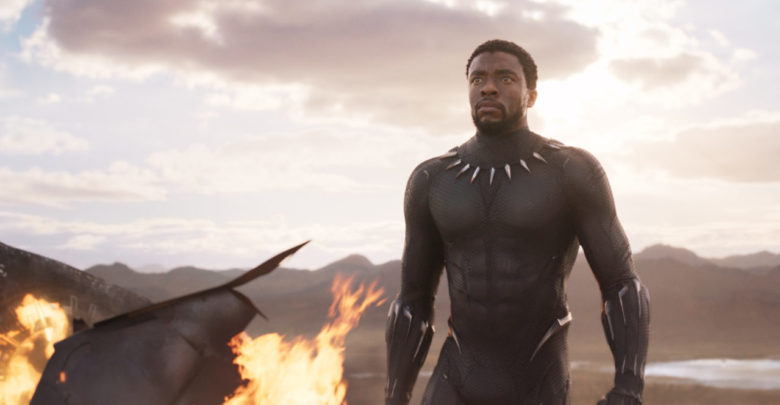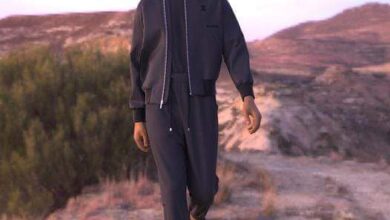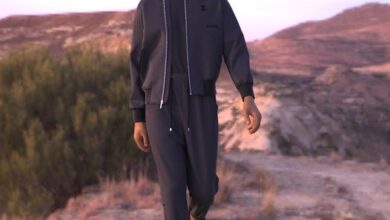
The $100 million Afro-futuristic marvel blockbuster, Black Panther, has generated mega-hype in both Africa and its American Diaspora. Hollywood has produced a revolutionary action-adventure thriller with an almost all-black cast of strong characters – particularly women – who have historically been invisible and marginalised in Tinsel Town. The film also has a black director (31-year old Ryan Coogler), a black co-screenwriter (Joe Robert Cole), a black costume-designer (Ruth Carter), and a black hip-hop soundtrack (Kendrick Lamar). Black Panther is set in a mythical African land of Wakanda: the most technologically advanced country in the world, based on its valuable vibranium wealth. The movie has built on the recent work of the “Black Panther” comic book of two African Americans: writer, Ta-Nehisi Coates, and director, Reginald Hudlin. It is beautifully produced and visually spectacular. The film raked in $235 million in its opening weekend in the United States (U.S.), and has since gone on to surpass $1 billion in sales. But despite the importance of Black Panther as a thrilling spectacular visual which has overturned traditional Hollywood conventions, one must ask if this movie is not just escapism for Africans and their descendants in an era of Donald Trump in which Africa and its Diaspora have been stereotyped as “shitholes.” Is the reaction to Black Panther part of black therapy for a people that have suffered more humiliation – through four centuries of slavery and colonialism – than any other race in history?
Black Panther makes a great effort to represent an authentic Africa. The film is set in the mythical East African nation of Wakanda, an Afropolis echoing visions of the biblical Garden of Eden. Wakanda is simultaneously a black El Dorado and a black Atlantis, with its architecture recalling the glories of the ancient Songhai, Mali, and Ghana empires. The assorted array of costumes are all of the Tuareg, Maasai, Dogon and Zulu, complete with Ndebele neck-rings. There are verdant landscapes, rising mountains, spectacular waterfalls, dense rainforests, rolling hills, savannah grasslands, glistening towers, and bustling street-markets. There are also flying spaceships and glistening hover trains. The main characters speak Xhosa. The scenes of charging rhinos in the final battle are spectacular. The movie moves breathlessly between high-tech Wakanda, explosive car chases in South Korea, the stealing of African art looted by European imperialists in the “Museum of Great Britain”, and back to Wakanda. The plot centres around the fight to rule the African kingdom of Wakanda between the sensitive African noble, T’Challa (Chadwick Boseman) whose father T’Chaka (the legendary South African actor, John Kani) has been murdered. T’Challa is surrounded by strong women allies like his genius scientist sister Shuri (Letitia Wright) who made him the bullet-proof armoured Black Panther bodysuit, and the female warrior-general, Okoye (Danai Gurira).
The other contender for the Wakandan throne, Erik “Killmonger” Stevens (Michael B.Jordan), is a former U.S. soldier who grew up in a poor community in Oakland, trying to avenge the death of his father, N’Jobu, by his brother, Wakandan King, T’Chaka. N’Jobu, like his son, had sought to use Wakanda’s technology to liberate oppressed black people across the globe. Several hand-to-hand combat scenes are played out in the background of waterfalls with colourfully-clad ethnic communities cheering on either side, as Africa’s traditional “warrior tradition” is enacted. The battalion of women warriors – the Dora Milaje – steal the show in much of the battle scenes. Killmonger allies with an Afrikaner arms dealer, Ulysees Klaue (the entertaining Andy Serkis), to reach the secluded kingdom in order to claim the throne from his cousin, T’Challa. Both contenders for the throne are black Hamlets, with a brooding T’Challa visiting the land of his ancestors to commune with his murdered father’s spirit. Killmonnger’s life mission is to avenge his father’s death by his uncle. Star-power is provided by two Oscar-winning actors: Kenyan Lupita N’yongo is impressive in the role of an emotionally detached spy, Nakia, who is T’Challa’s old flame; while Forest Whitaker is graceful as the old high priest, Zuri. Angela Basset is a dignified queen mother to T’Challa. A CIA (Central Intelligence Agency) operative, Everett Ross (Martin Freeman), is the only other major white actor, who allies with T’Challa to vanquish Killmonger’s troops.
Black Panther’s first problem is that a successful, industrialised African country has to be hidden from the world: even in this fantasy movie, a future industrialised African country must be mythological while everything outside it in the rest of the continent is chaos and anarchy. A constant striving for Western technology as the epitome of where Africa’s socio-economic development needs to reach, is also discomforting. It is almost as if technology determines the value of a people’s culture, a narrative totally detached from historical acts of genocide, slavery, and colonialism that have created the current international system of a Western-dominated “global apartheid.” Black Panther enthrones monarchical rule over meritocratic egalitarianism. The film could have built more on the continent’s own authentic traditions, as Japan and China have succeeded in doing in the real world. Both Asian giants borrowed technology from the West, but harnessed it to their own cultures and traditions. Wakanda is, in stark contrast, the product of a fertile Western imagination, replicating the way in which Hollywood is constantly flaunting the supposed superiority of American technology to the rest of the world.
The “Black Panther” adventure comic was, in fact, created in 1966 (months before the radical political group emerged) by two white comic writer/artists, Stan Lee and Jack Kirby.
The constant references to African “tribes” in the movie falls into the very stereotypes that it claims to be wanting to escape. The gorilla noises made by Chief M’Baku’s (Winston Duke) group of rebels also perpetuate stereotypes of African barbarism. The impressive portrayal of strong black women and a progressive masculinity must also be placed within the context of a continent, large parts of which still suffer from a hyper-machoism and still shocking levels of sexual violence. Is it only in this mythical world that such enlightened gender roles exist? In a bid to reverse African stereotypes, should we only take efforts to portray an industrialised Africa seriously, and ignore other realities?
Much of the ferocious debates about this film has centred around the contrasting visions of the blood feud between two rival Kings: T’Challa and Killmonger. T’Challa wants to keep technology solely for the use of his kingdom, and maintain a hermitic existence that excludes outsiders and “refugees”. He is a moderate isolationist committed to the status quo. His monarchical rule is presented as benevolent, while Killmonger’s radical rebellion is depicted as a descent into blood-thirsty despotism. The real Black Panther (in ideological terms) is Killmonger who seeks to use Wakanda’s technology for the liberation of oppressed blacks in Africa and its Diaspora. His views are represented in the film as extreme, and a vain bid to replace white domination with black domination. By portraying Killmonger as a psychopath, the filmmakers encourage us to support T’Challa’s more moderate vision. Killmonger – as his name unsubtly suggests – does not adopt the non-violent Gandhian approach of civil rights stalwart and Nobel Peace laureate, Martin Luther King Jr., but rather, the radical, self-help separatism of Malcolm X’s Nation of Islam. T’Challa represents black moderation and isolation; Killmonger black radicalism and liberation.
Some African-American critics reacted strongly to the portrayal of Killmonger – a poor boy who grew up in an American ghetto – as the archetypal “angry black man” who uses more brawn than brain to pursue his goals. Killmonger, as warrior-prophet, has no ideology or philosophy that can win enough adherents to his liberation theology. This is in stark contrast to the monarchical African T’Challa, born of a noble upbringing and portrayed as a wise King. African-American scholar, Christopher Lebron, regarded the movie as a “shocking devaluation of black American men,” noting that Killmonger was portrayed as a “receptacle for tropes of inner-city gangsterism.” Some have even gone as far as identifying T’Challa as a Barack Obama-type figure, a child of a Kenyan immigrant whose father arrived in America on an aeroplane rather than on a slave-ship, resulting in him lacking the anger of slave-descended African Americans. Wakanda is also a paradoxical militaristic monarchy which tries simultaneously to portray itself as a consultative democracy in which the divergent isolationist and emancipatory visions of two determined Kings collide. But yet, the audience is encouraged to back the moderate, isolationist vision over the radical emancipatory one which is depicted as vengeful, blood-thirsty, and ultimately unachievable. The fact that a white CIA agent is on the winning side – having completely “gone native” – has also been criticised for replaying the tired Hollywood trope of the “White Messiah syndrome” seen in such movies as Tarzan, Biko, Blood Diamond, and Hotel Rwanda.
But despite these flaws, Black Panther is ultimately more positive than negative. It entertains, but it is unclear how much it educates, as it reproduces some of the stereotypes and tropes about Africa that it seeks to destroy. If Hollywood could just figure out how to make more films with real African characters (as its Nigeria version, Nollywood, already prolifically does), this would go a long way in changing negative perceptions about Africa in the West. But Black Panther is not a game-changer. It is racial therapy and a soothing balm of escapism in the xenophobic era of Trump.
Prof. Adebajo is director, Institute for Pan-African Thought and Conversation, University of Johannesburg, South Africa.
By Adekeye Adebajo, guardian.ng







